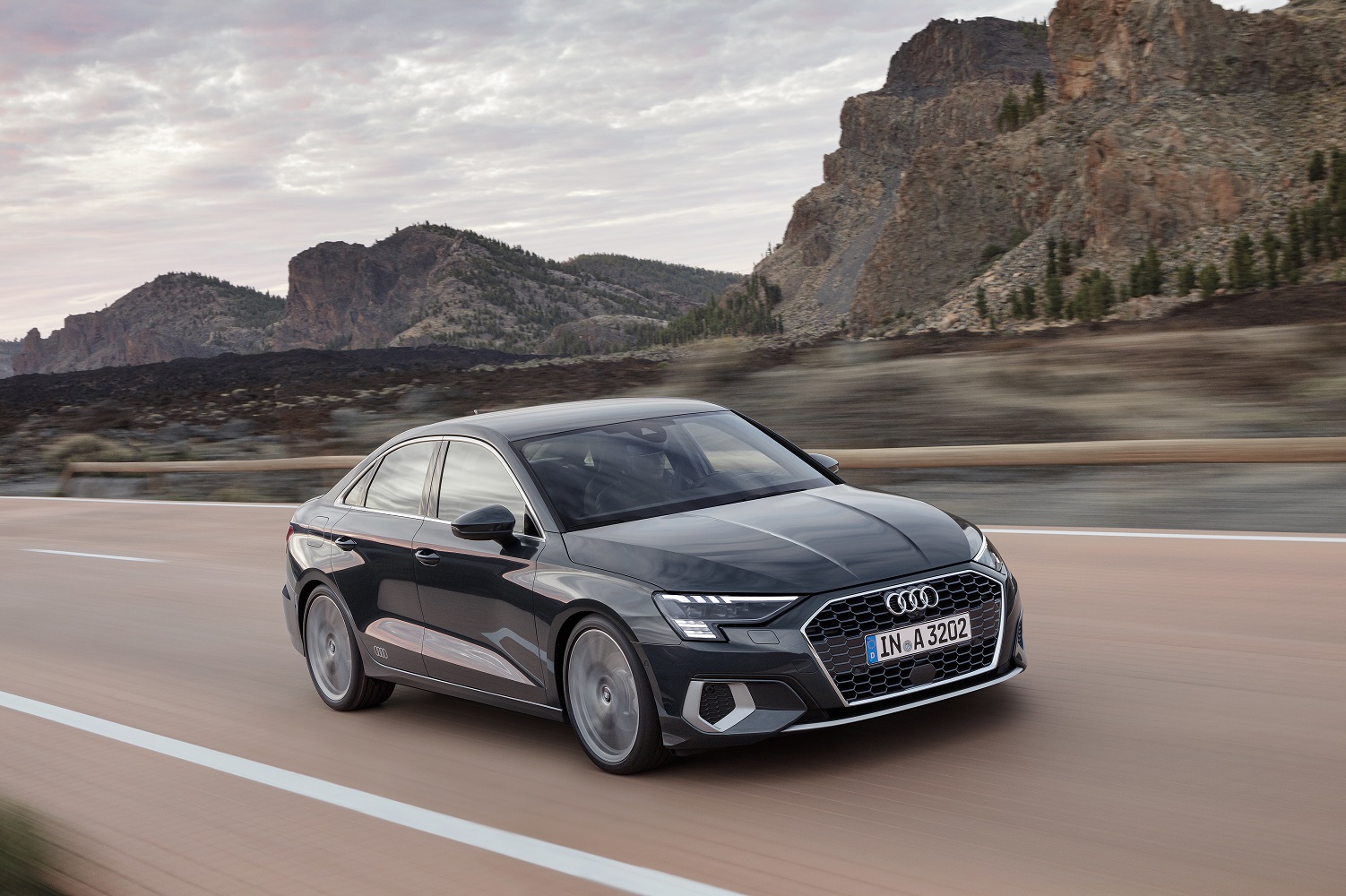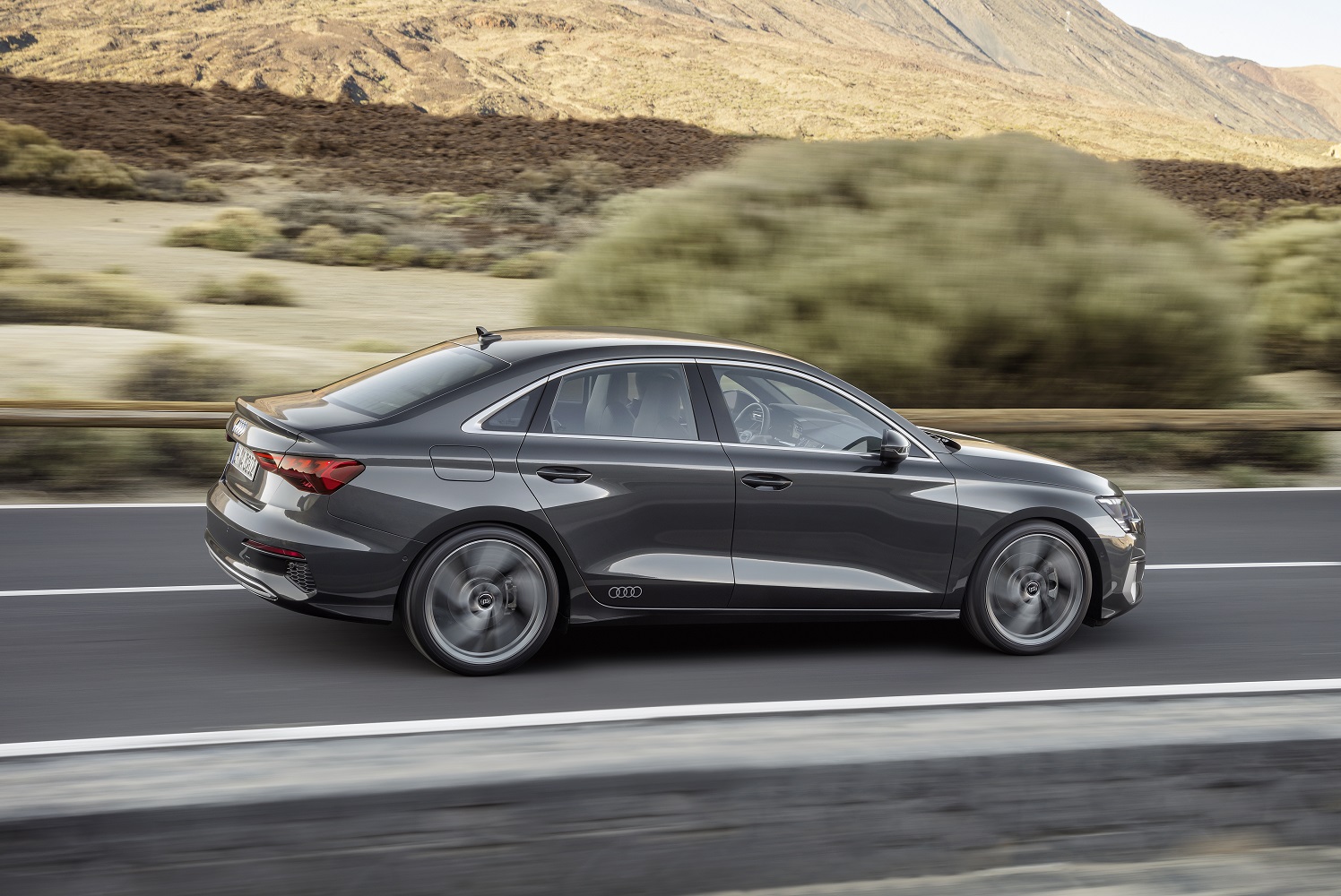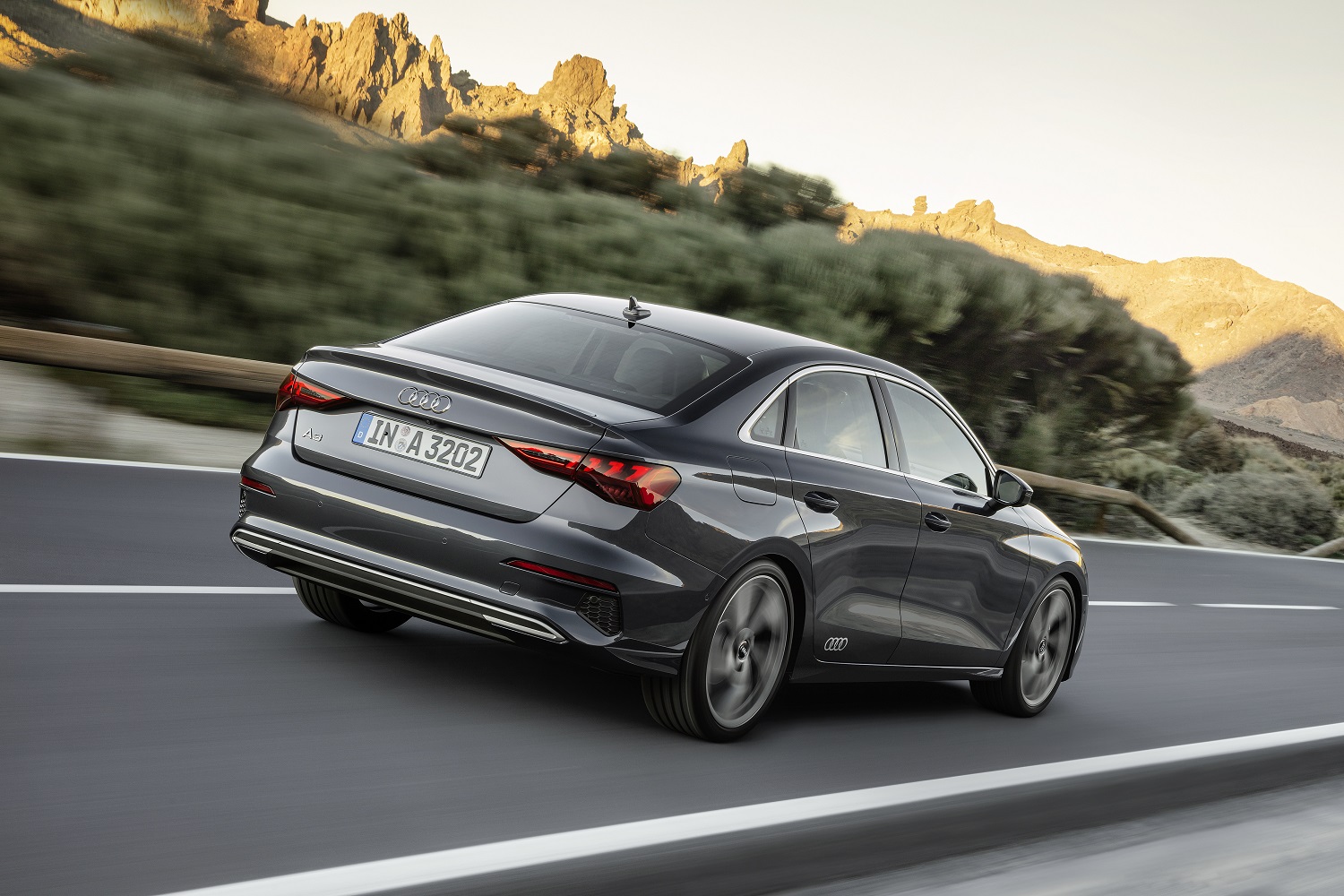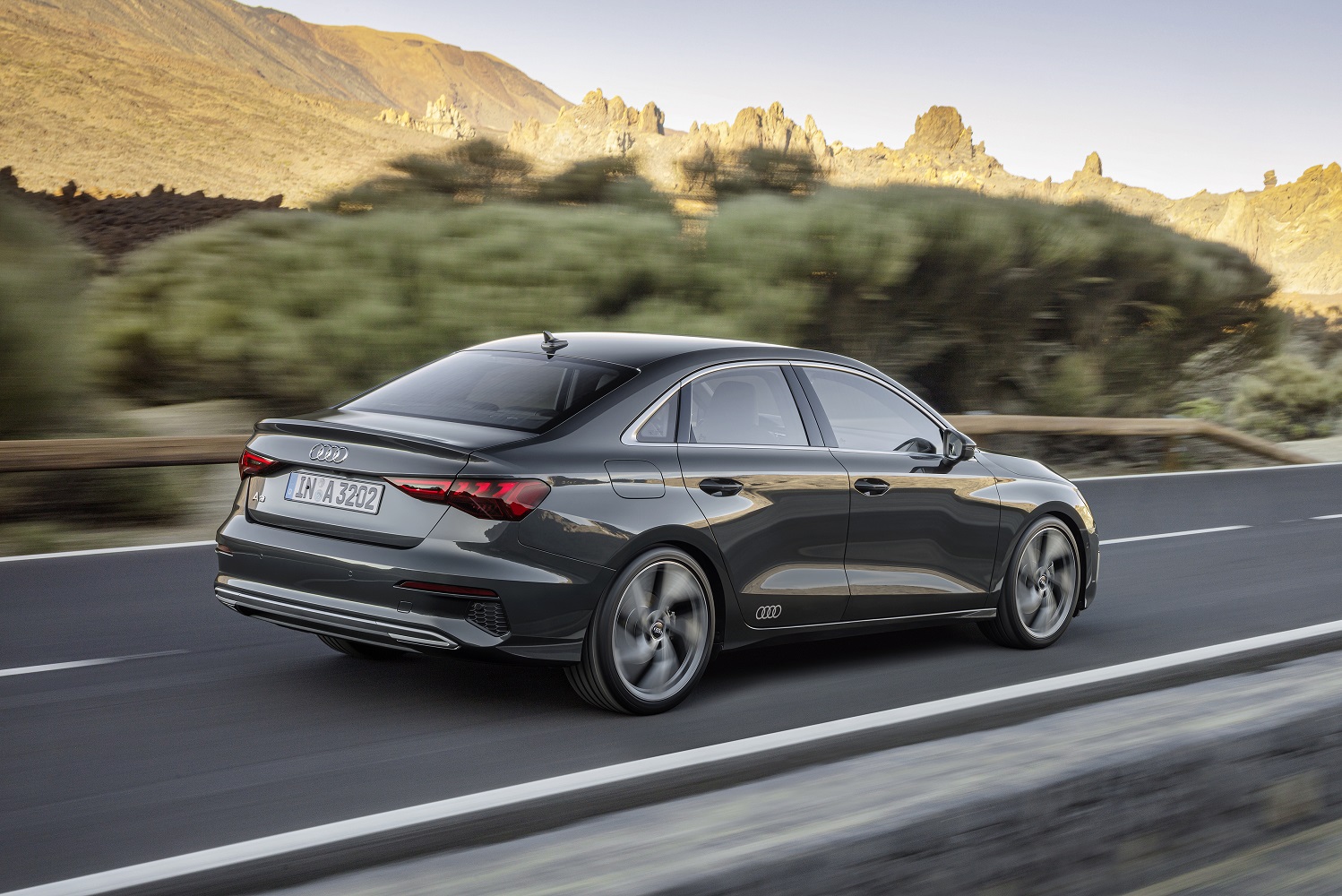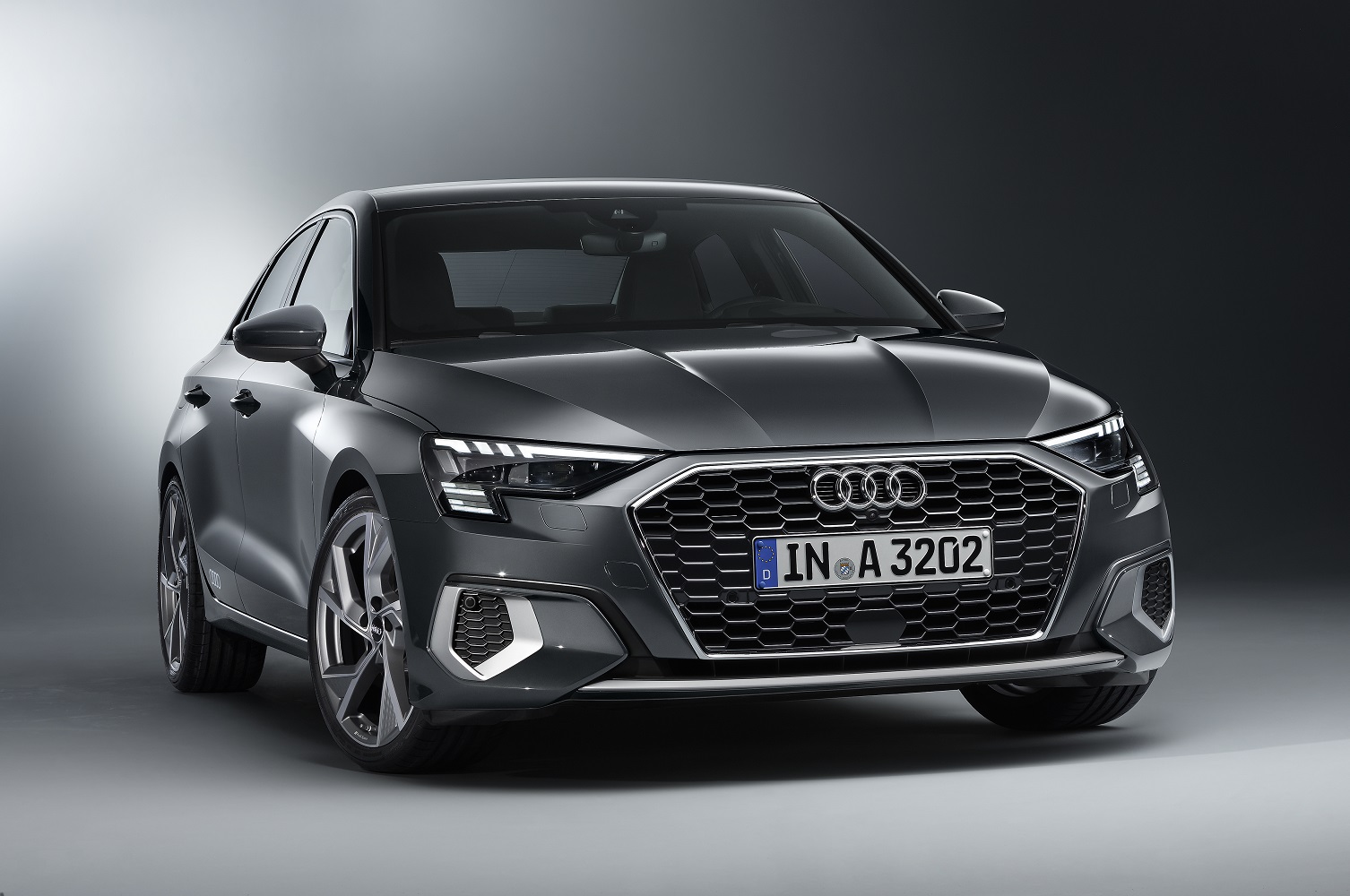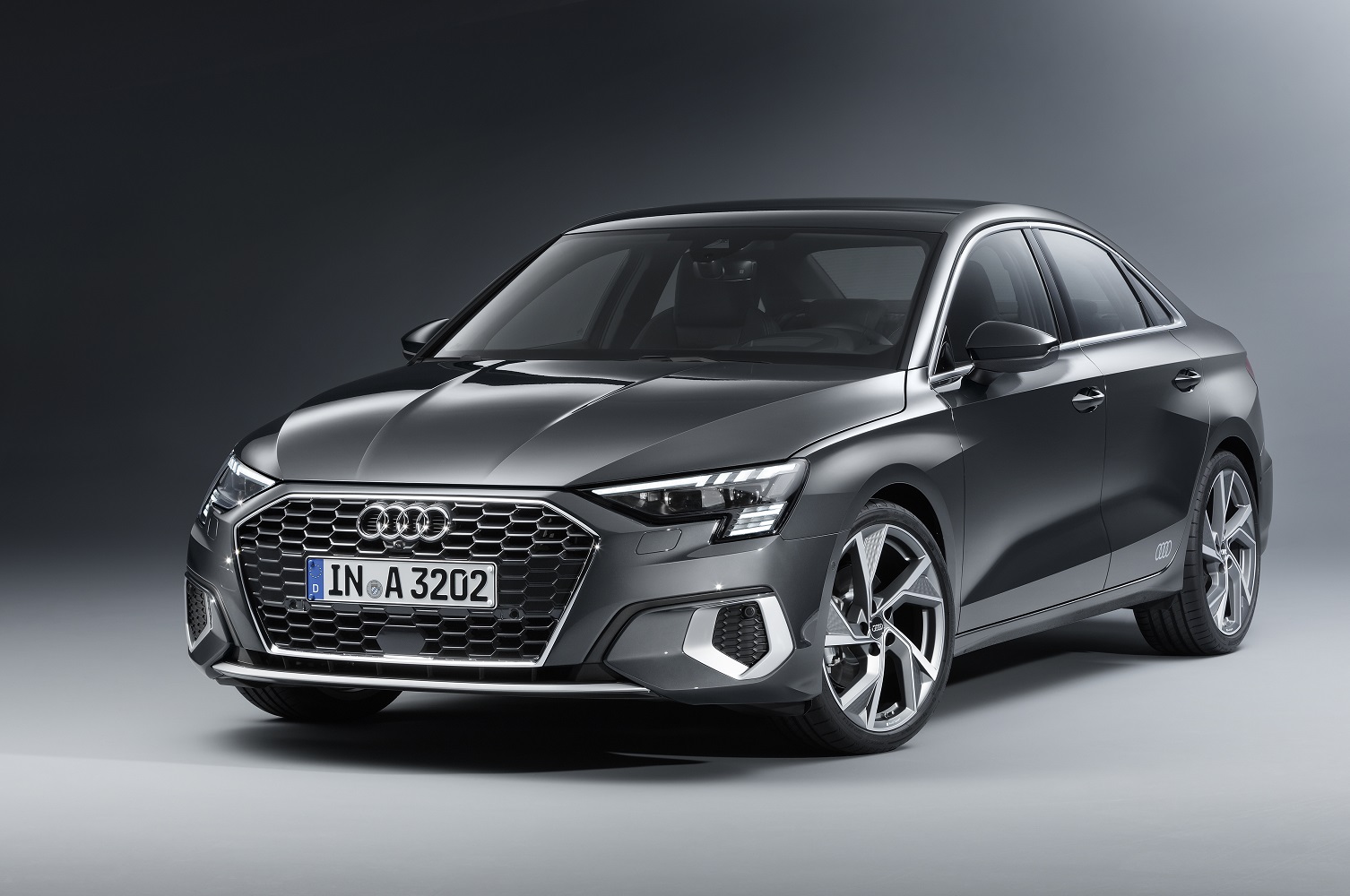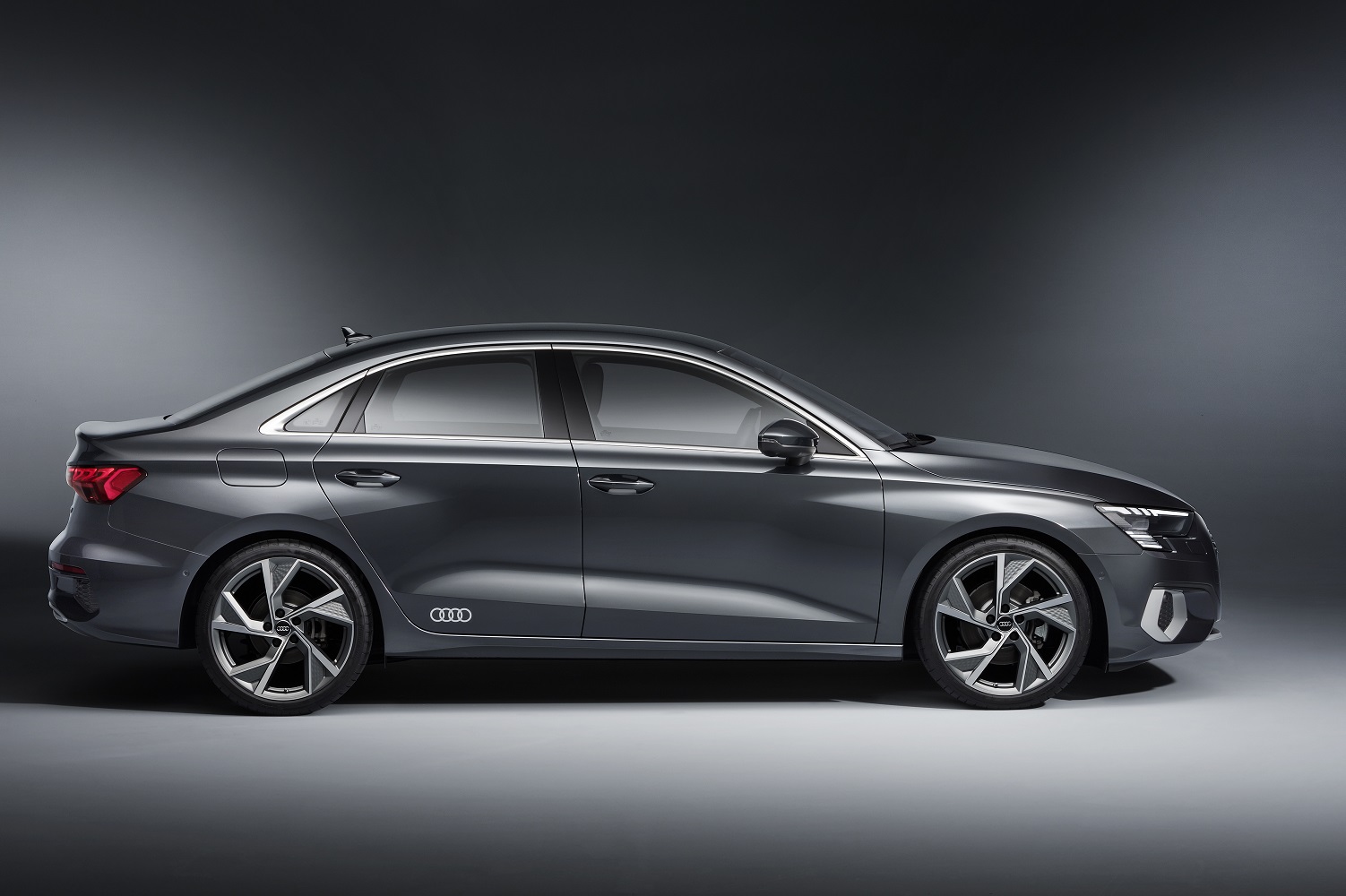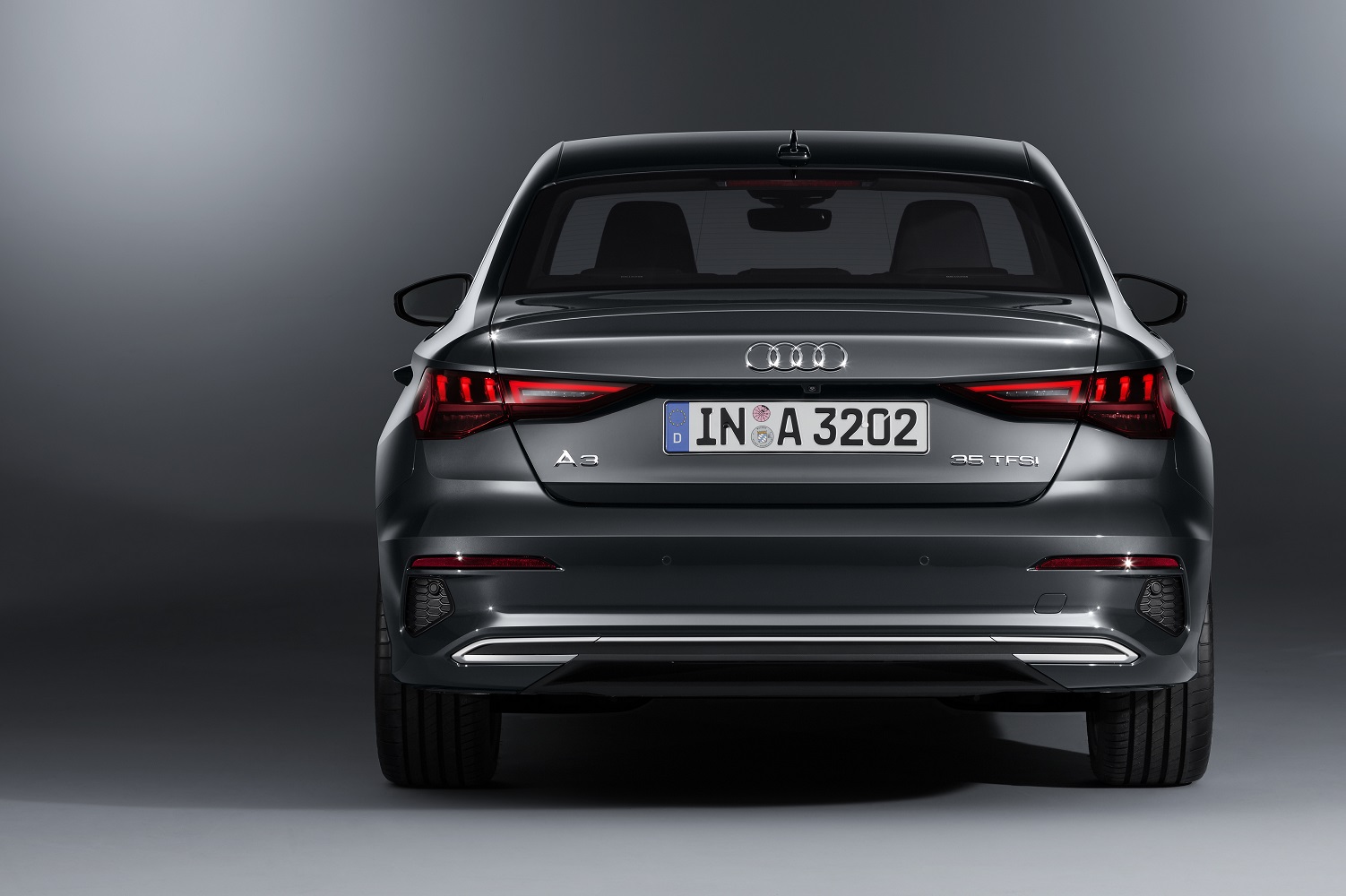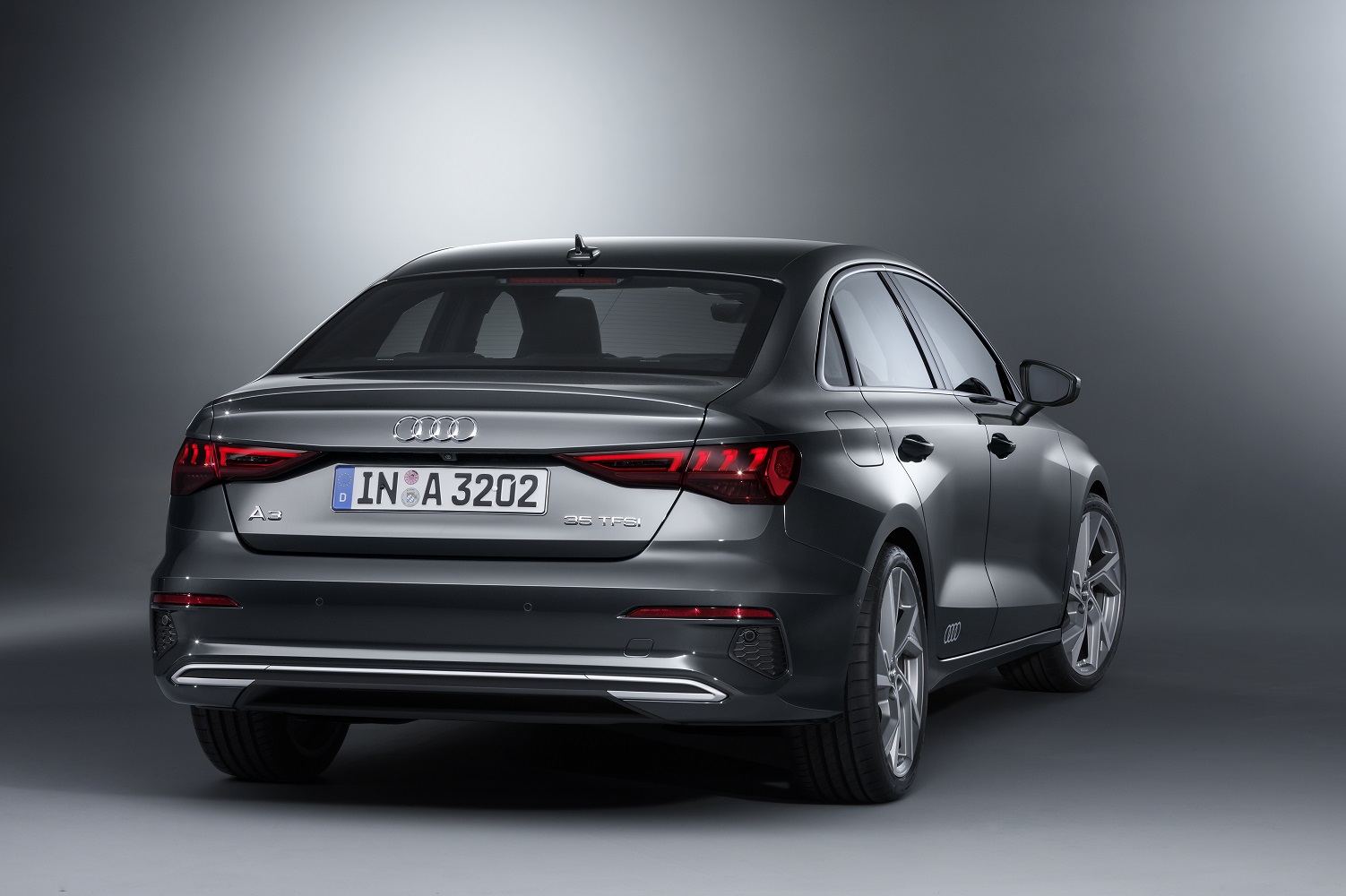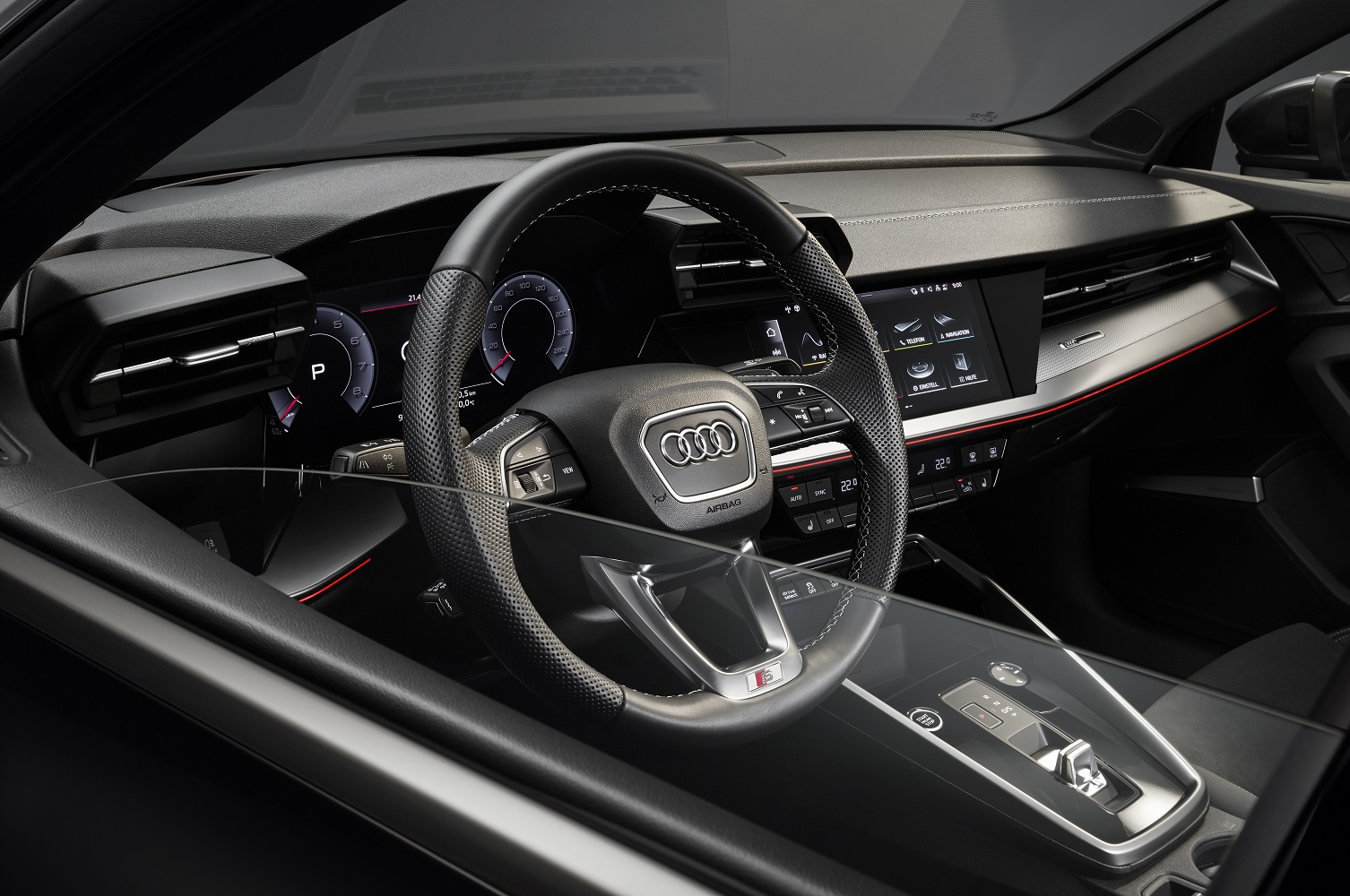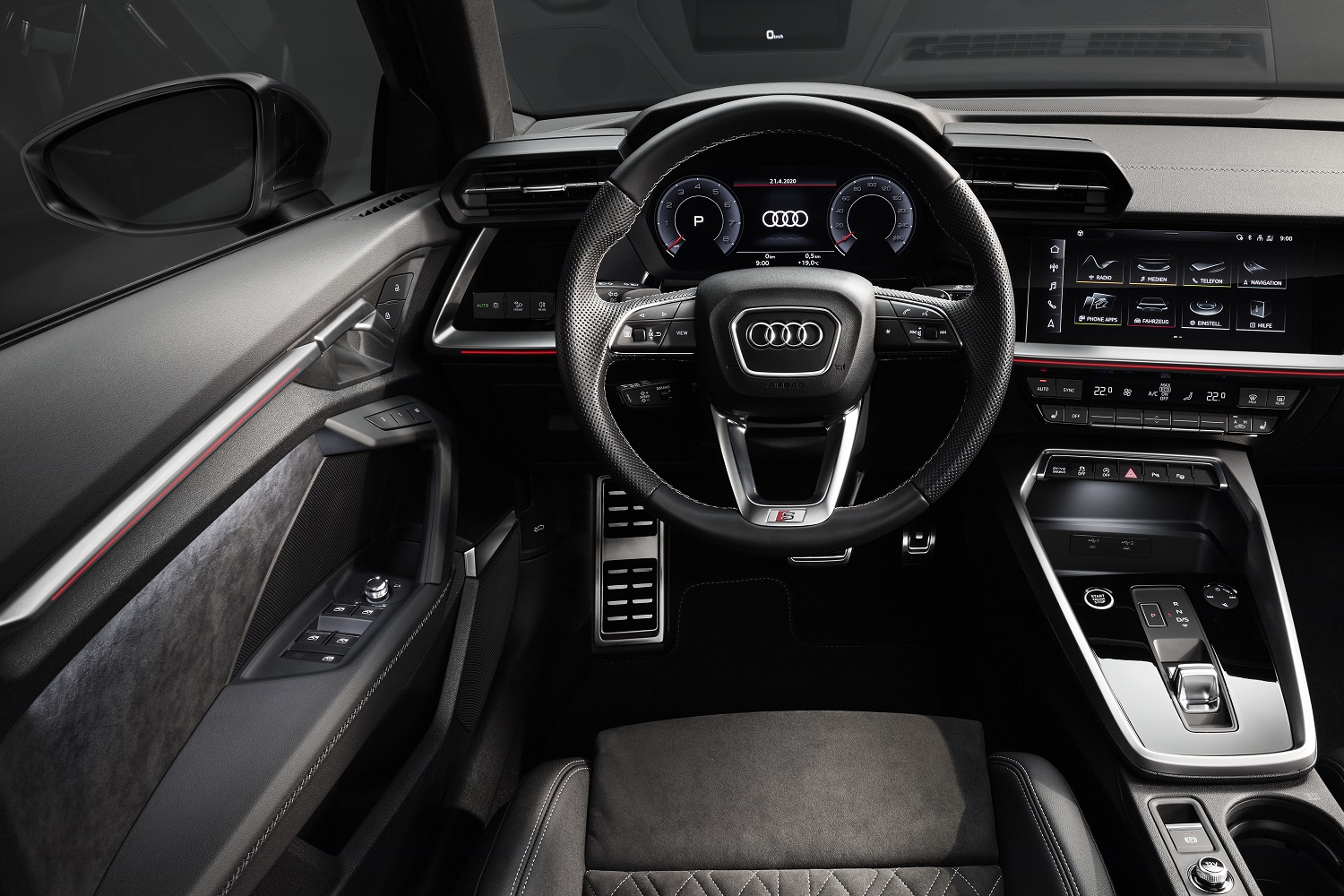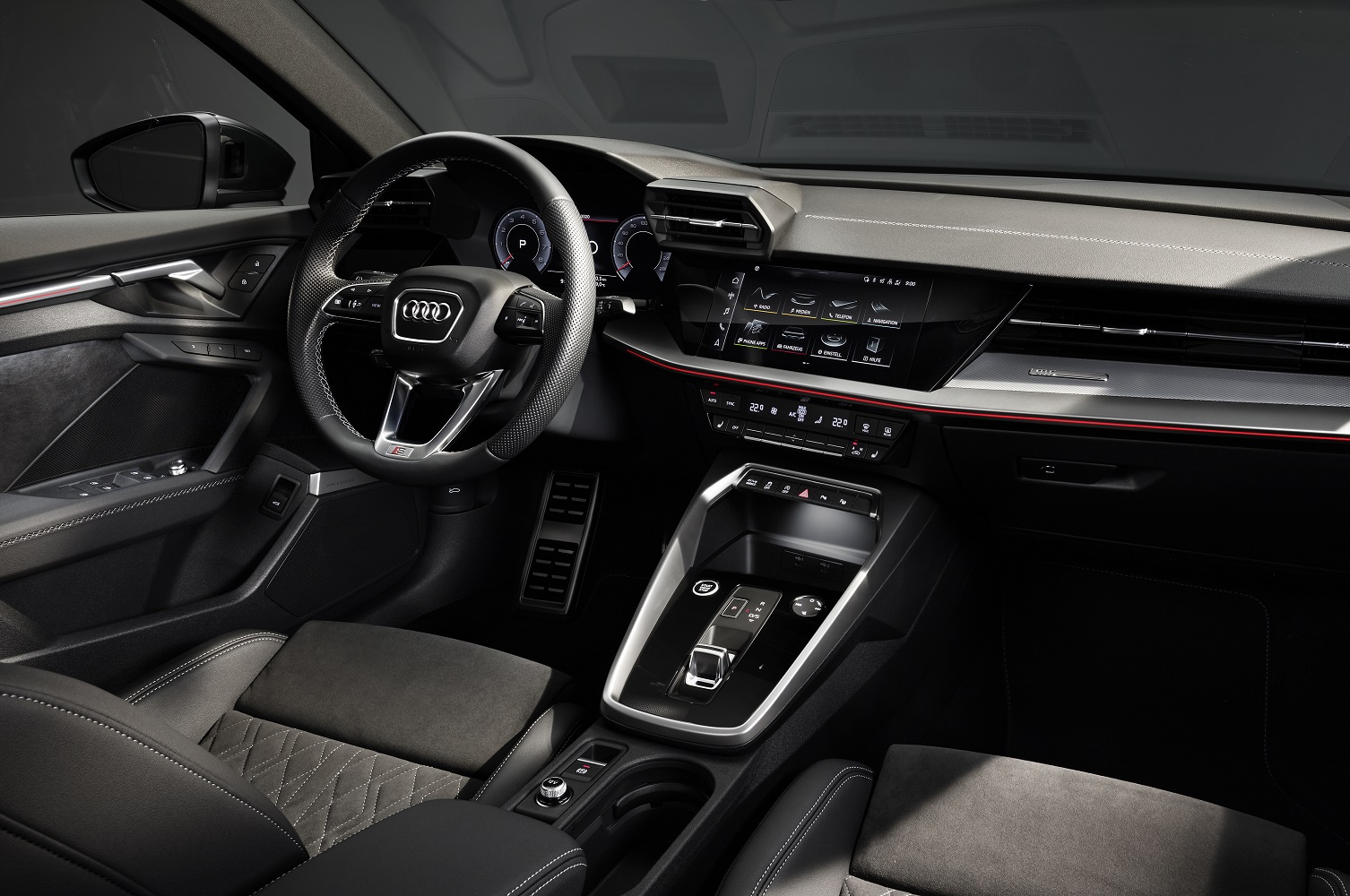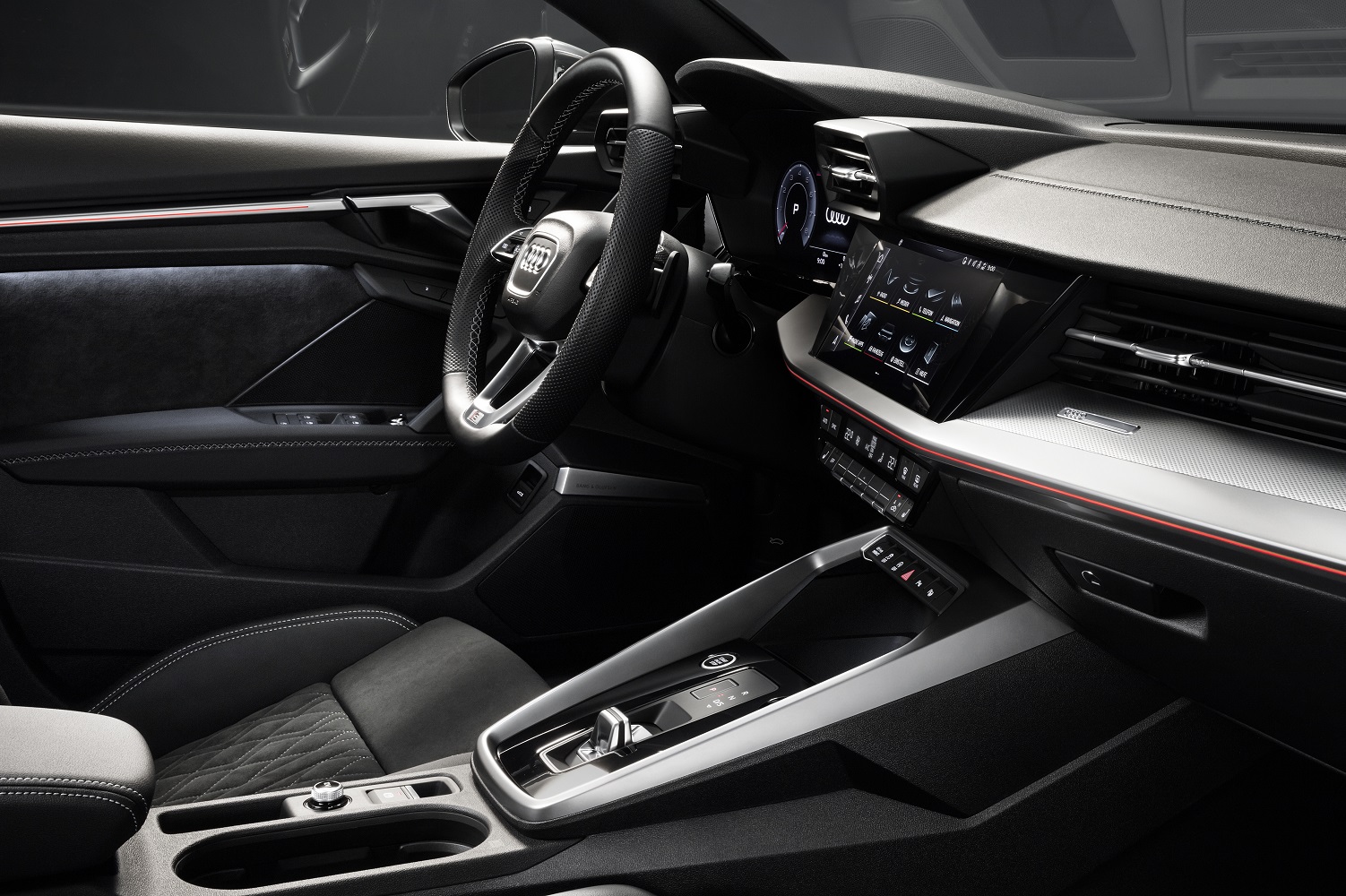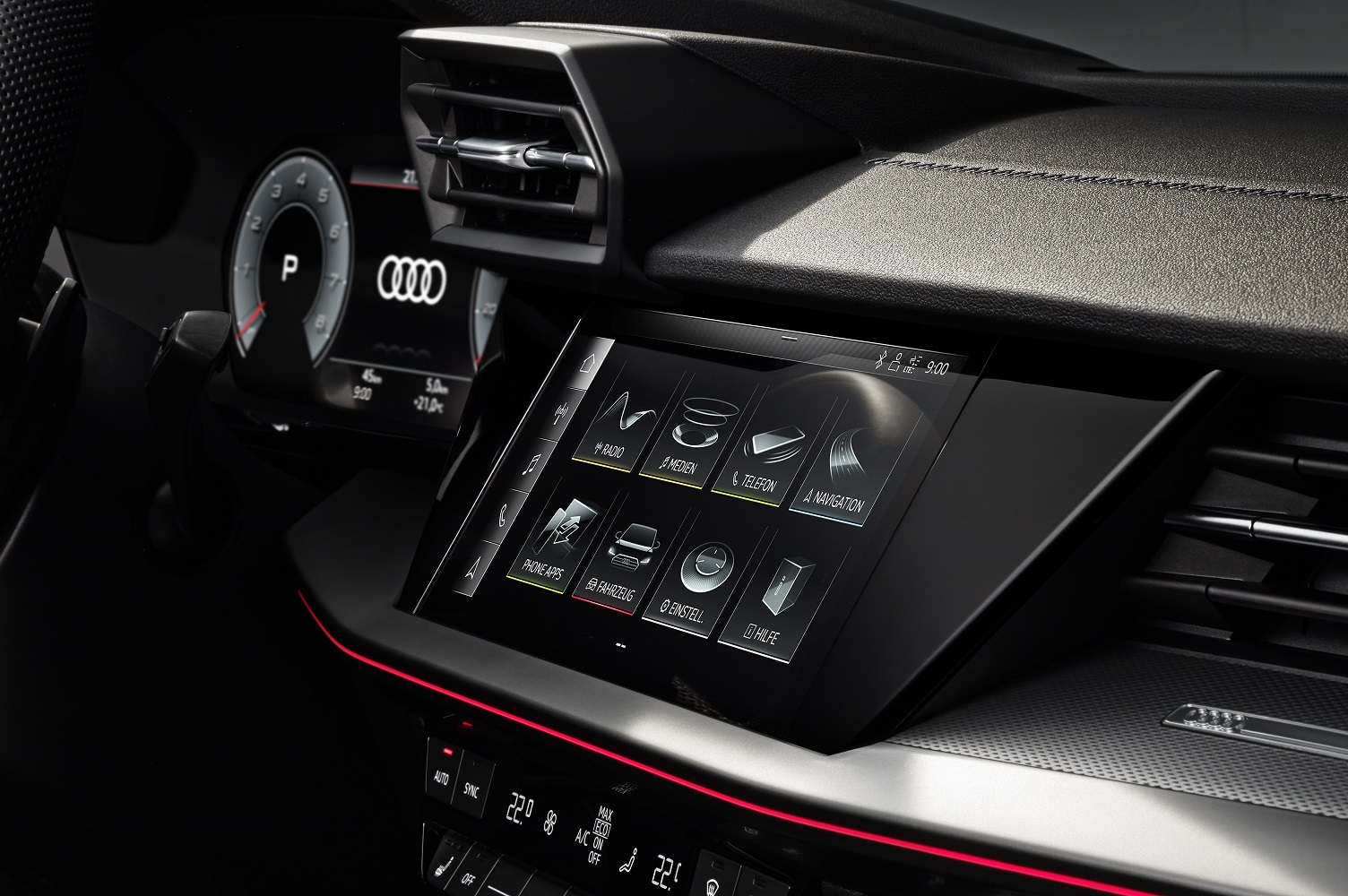Audi released a full set of details about the next-generation A3, which will make its debut in America in time for the 2022 model year. It will again be positioned at the bottom of the firm’s range, but there’s nothing basic about it.
As has historically been the case, the sedan shares its basic front-end design with the Sportback, which is Audi-speak for hatchback. The headlights are more angular than before, while the grille is shorter and wider. The roofline gently flows into a rear end characterized by horizontal lights with LED inserts. All told, the changes bring the A3 in line with other recent additions to the Audi range, like the second-generation Q3 introduced in 2019.
Stylists redesigned every part of the interior, too, but the most significant changes involve technology. Audi’s newest MMI infotainment system trickles down from bigger and more expensive models. It brings with it 10 times the computing power of the system found in the previous model for quicker response times and better connected services. Motorists can connect the software to the internet to access real-time traffic information and the latest news, plus information about points of interest like photos, opening times, and user reviews.
Putting quicker software in the A3 enables Audi to make swarm-intelligence-based car-to-x services available, too. The sedan can share such information as the presence of road hazards and temporary speed limits with compatible cars. It can also, in some cities, help the driver find a free parking spot by communicating with parking garages. Navigation directions automatically get transferred to your smartphone via the MyAudi app, so you can continue walking to your destination without getting lost.
At launch, the only engine available will be a 2.0-liter four-cylinder turbocharged to 201 horsepower. Front-wheel drive and a seven-speed automatic transmission will come standard, and Audi’s Quattro all-wheel drive system will be offered at an extra cost. The big news on the global specifications sheet is the availability of 48-volt mild-hybrid technology that harvests the kinetic energy generated while the car coasts to a stop and injects it back into the driveline when the driver steps on the gas again. This system makes the A3 peppier when pulling away from a stop sign, for example, by generating up to 37 pound-feet of additional torque.
Asked about the possibility of seeing a plug-in hybrid model, Audi told us it has received a lot of requests for one, but it hasn’t decided whether to sell it in the United States yet. Called E-Tron, the plug-in variant has been confirmed for the European market, though it will take the form of a hatchback named Sportback in Audi-speak.
It’s not too far-fetched to assume we would have seen the American-spec variant of the A3 Sedan at the 2020 edition of the New York International Auto Show, but the event was delayed from April to August due to the ongoing coronavirus pandemic, and was later canceled. Audi hasn’t revealed when the public and the press will get the opportunity to discover the newest addition to its range, but it will arrive in showrooms in 2021.
Pricing information will be released in the weeks leading up to its on-sale date. For context, the current-generation A3 Sedan starts at $33,300. Its rivals include the BMW 2 Series Gran Coupe and the Mercedes-Benz A-Class Sedan.
Looking ahead, the range will grow when the German firm introduces the midlevel S3 and the hot-rodded RS 3, which is expected to keep its five-cylinder engine. We could see a plug-in hybrid variant in showrooms, too.
Updated July 23, 2020: Added information about the American-spec A3.
